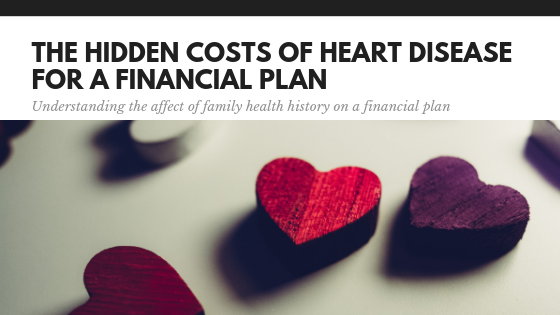Heart disease is not only the leading cause of death for both men and women, claiming 1 in 3 American lives, according to the American Heart Association, it’s also a leading cause of disability. So how can you, as a financial planner, help protect your clients from these risks?
As part of Heart Health Awareness Month, we at
For each of these HALO Planner scenarios, we used a 50-year-old woman with a healthy BMI who is a non-smoker and does not exercise regularly. She wants to retire in Florida at age 65.
No Family History of Heart Disease
In this instance, the client taking the assessment had the above characteristics and no family history of heart disease.
Longevity: 96
Did you know that the median cost of 3 years of elder care in Florida ranges between $409,560 and $2,538,336 depending on level and type of care?
OOP costs in retirement = $274,394 (many active years)
The cost of the above scenario ranges between $846,672 – $1,056,438, depending on
While the client will live a long and healthy life, it’s important to note that her out-of-pocket expenses will be higher strictly due to longevity and having more years where she’ll be spending on health costs.
Family History of Heart Disease
For this scenario, the client does not yet have heart disease, however, she does have a strong family history of the chronic condition. Here’s how her longevity, elder care, and out-of-pocket care costs numbers stack up:
Longevity: 95 years
Did you know that the median cost of 6 years of elder care in Florida ranges between $425,574 and $2,637,589 depending on level and type of care?
Out-of-pocket care costs (in retirement) = $210,907 (nearly the same as above, however, with only half the active retirement years)
The cost of the above scenario ranges between $1,204,192 – $1,367,599, depending upon the level of care.
Though her longevity in this case in two years shorter, she’ll have more out-of-pocket expenses and in elder care costs due to a long life with potential health concerns. It’s critical to plan for the possibility that the client will get heart disease in her lifetime, but potentially not until later in life, which increases the number of years in elder care.
A conversation about disability insurance might also be helpful. If your client is healthy now, getting disability insurance could be a smart idea as it will replace some of their lost income if she ever become disabled by heart disease or another condition and can’t work.
Learn more by requesting a HALO consultation today or visiting the American Heart Association.

